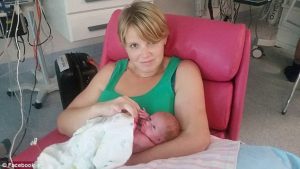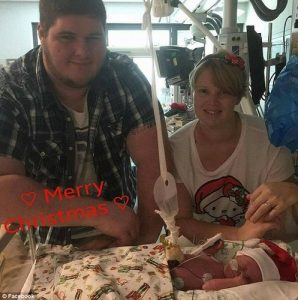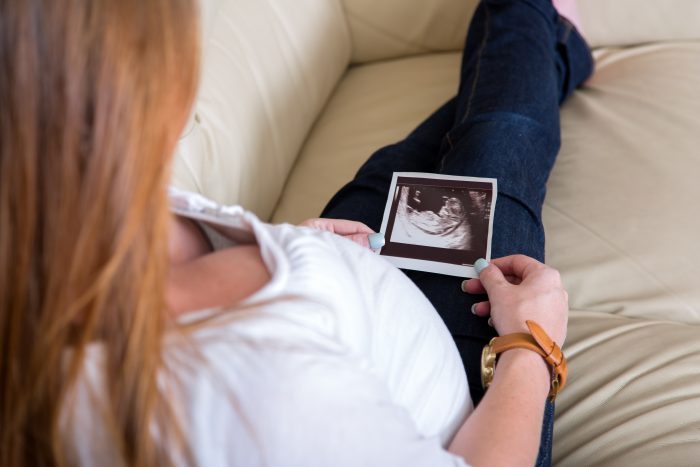When Holly Hodgson was 12 weeks pregnant, she learned that her preborn baby had gastroschisis. His intestines, along with other organs, were growing outside of his body through a hole near his belly button. But what shocked her more than the diagnosis, was that her doctor told her to abort her baby.
“The radiologist said it would be fine but then when I went to see my doctor he told me that I should terminate because he had only seen three other cases who all terminated,” Hodgson told Kidspot.
Instead of agreeing to abort, Hodgson said she wanted a second opinion, and went home to do some research on the condition. What she learned made her doctor’s advice even more upsetting. She discovered that 90-95% of babies diagnosed with gastroschisis survive the pregnancy. The doctor she went to for a second opinion assured her she had made the right decision not to abort her baby and told her she would need to be closely monitored for the duration of her pregnancy.
“It makes me sick and angry when I look back on what he said,” said Hodgson referring to her doctor who advised termination.

Teddy and his mother. Photo via Facebook.
Baby Teddy was born early and weighed just over four pounds. During the first hour of his life, he was wrapped in plastic wrap to protect his intestines. Then his organs were placed into a silo bag for thirteen days to give his belly time to grow large enough that the doctors could fit his organs inside his body.
“Not being able to hold him when all of the parents around us could hold their babies was pretty awful,” Hodgson said.

Teddy and his parents. Photo via Facebook.
Two days after Christmas, when Teddy was 13 days old, Hodgson finally got to hold her son. Teddy continued to grow and get stronger. He was discharged after ten weeks and is a happy and healthy little boy.
“He’s such a happy boy,” said Hodgson. “He just loves making faces and talking to people. He always smiles, giggles and squeaks at people he doesn’t even know – it’s very cute.”
Parents should always do their own research and talk to other doctors and parents before ending the life of their child. Even if a doctor initially say a child will die at birth, talking to parents and other knowledgeable doctors can have a huge impact on your knowledge and thoughts about a child’s diagnosis.







